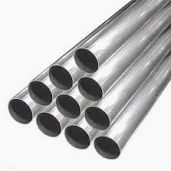
Precision Mechanical Parts The Foundation of Modern Engineering
In the contemporary landscape of engineering and manufacturing, precision mechanical parts play a pivotal role in ensuring the functionality and reliability of a vast array of systems and devices. From aerospace to robotics, the demand for high-quality, precise components has reached unprecedented levels, driving advancements in manufacturing techniques and technologies.
Precision mechanical parts refer to components manufactured with a high degree of accuracy, often measured in microns. These parts are typically utilized in applications where tolerances must be tightly controlled to ensure optimal performance and safety. Industries such as automotive, aerospace, medical devices, and electronics depend heavily on these components, highlighting their significance across various sectors.
The Importance of Precision
The importance of precision in mechanical parts cannot be overstated. In the automotive industry, for instance, engine components must be manufactured to exact specifications to ensure efficiency, power, and reliability. A slight deviation in the size or shape of an engine part can lead to mechanical failure, which can have catastrophic consequences. Hence, manufacturers invest heavily in precision engineering to ensure that every part meets the required specifications.
Aerospace applications are even more stringent in their requirements. The aerospace sector demands parts that can withstand extreme conditions, from intense heat to high-pressure environments. Precision is critical here; a faulty part can jeopardize the safety of an aircraft, putting lives at risk. Consequently, aerospace manufacturers employ advanced machining techniques, stringent quality control processes, and specialized materials to produce components that meet or exceed industry standards.
Advancements in Manufacturing Technologies
The evolution of manufacturing technologies has significantly enhanced the production of precision mechanical parts
. Traditional manufacturing methods, such as machining and casting, have been refined and integrated with modern technologies, including computer numerical control (CNC) machining, additive manufacturing, and laser cutting.CNC machining has revolutionized how precision parts are produced. With the ability to control machinery through programmed commands, CNC machining allows for the creation of complex geometries with a high degree of accuracy. This technology minimizes human error, speeds up production times, and allows for batch production of identical parts, all of which are crucial in meeting the demands of various industries.

Additive manufacturing, commonly known as 3D printing, has also emerged as a game-changer in the production of precision parts. Unlike traditional subtractive methods, additive manufacturing builds components layer by layer, allowing for more intricate designs and personalization. This technology is not only cost-effective for producing small batches but also enables rapid prototyping, facilitating faster innovation and product development cycles.
Quality Control and Standards
With the growth of the precision parts industry comes the necessity for stringent quality control and adherence to industry standards. Various standards and certification programs, such as ISO 9001 and AS9100 for aerospace, guide manufacturers in maintaining product quality and consistency. These standards ensure that all parts produced meet the required specifications and are tested rigorously for performance and reliability.
Modern quality control techniques, including computer-aided inspection and automated testing systems, allow manufacturers to monitor the precision of their parts throughout the production process. Non-destructive testing (NDT) methods are also employed to assess the integrity of components without causing any damage, further ensuring that only the highest quality parts reach the market.
Challenges and Future Prospects
Despite the advancements in technology and quality control, the precision parts industry faces several challenges. The increasing complexity of designs, the push for sustainability, and the demand for faster turnaround times necessitate continuous innovation. Manufacturers must balance the need for precision with cost-effectiveness and the ability to scale production.
Looking ahead, the future of precision mechanical parts is likely to be characterized by further integration of digital technologies, such as the Internet of Things (IoT) and artificial intelligence (AI). These technologies can provide real-time data and insights, allowing manufacturers to optimize their processes and proactively address issues before they escalate.
In conclusion, precision mechanical parts form the backbone of many modern engineering applications, ensuring safety, efficiency, and reliability across diverse industries. As technology continues to evolve, the focus on precision will remain paramount, driving innovations that will shape the future of manufacturing and engineering.